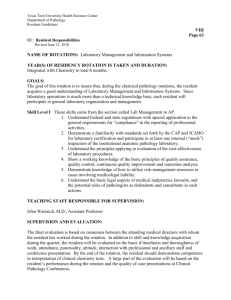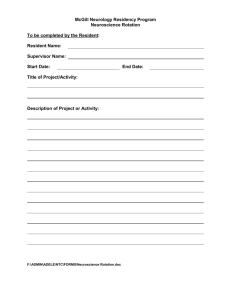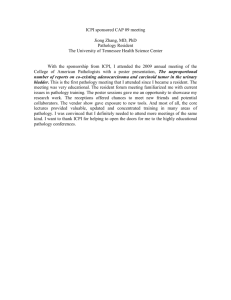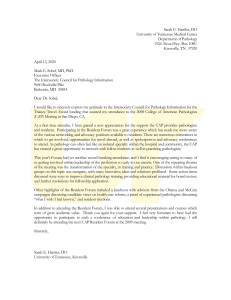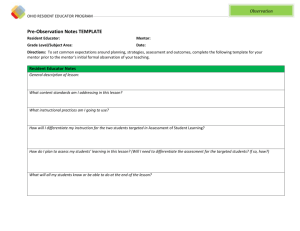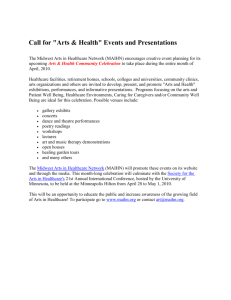UNIVERSITY OF ARKANSAS FOR MEDICAL SCIENCES
advertisement
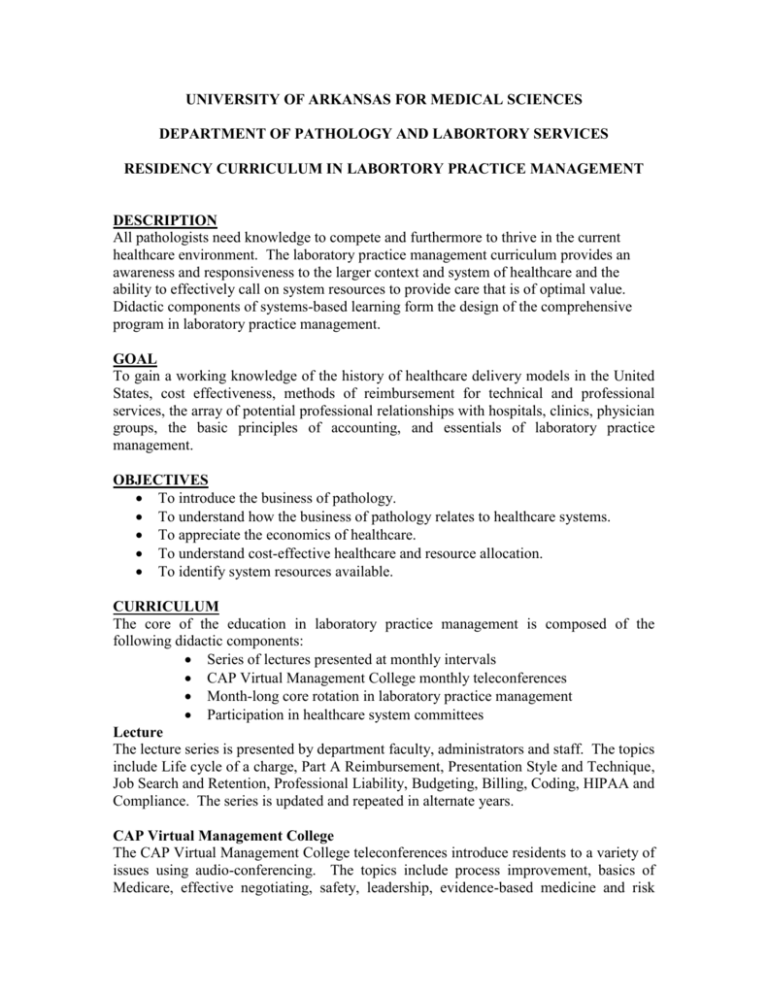
UNIVERSITY OF ARKANSAS FOR MEDICAL SCIENCES DEPARTMENT OF PATHOLOGY AND LABORTORY SERVICES RESIDENCY CURRICULUM IN LABORTORY PRACTICE MANAGEMENT DESCRIPTION All pathologists need knowledge to compete and furthermore to thrive in the current healthcare environment. The laboratory practice management curriculum provides an awareness and responsiveness to the larger context and system of healthcare and the ability to effectively call on system resources to provide care that is of optimal value. Didactic components of systems-based learning form the design of the comprehensive program in laboratory practice management. GOAL To gain a working knowledge of the history of healthcare delivery models in the United States, cost effectiveness, methods of reimbursement for technical and professional services, the array of potential professional relationships with hospitals, clinics, physician groups, the basic principles of accounting, and essentials of laboratory practice management. OBJECTIVES To introduce the business of pathology. To understand how the business of pathology relates to healthcare systems. To appreciate the economics of healthcare. To understand cost-effective healthcare and resource allocation. To identify system resources available. CURRICULUM The core of the education in laboratory practice management is composed of the following didactic components: Series of lectures presented at monthly intervals CAP Virtual Management College monthly teleconferences Month-long core rotation in laboratory practice management Participation in healthcare system committees Lecture The lecture series is presented by department faculty, administrators and staff. The topics include Life cycle of a charge, Part A Reimbursement, Presentation Style and Technique, Job Search and Retention, Professional Liability, Budgeting, Billing, Coding, HIPAA and Compliance. The series is updated and repeated in alternate years. CAP Virtual Management College The CAP Virtual Management College teleconferences introduce residents to a variety of issues using audio-conferencing. The topics include process improvement, basics of Medicare, effective negotiating, safety, leadership, evidence-based medicine and risk management. The presentations are made by national faculty experts. At the end of each session, residents are afforded an opportunity for questions. Participation is documented and required for at least 8 of the 10 sessions offered. Rotation The month-long core rotation in laboratory practice management is intended to permit a senior-level resident to participate intensively in laboratory practice management as practiced in the UAMS Department of Pathology and Laboratory Services. The resident is expected to attend weekly and monthly meetings and conferences as directed. The resident will be provided a collection of reference material for daily reading assignments. The resident will be prepared to discuss the week’s reading during a regularly scheduled meeting once a week with the administrator. Once the resident selects management project, a mentor will be assigned. The topic may involve, but is not limited to, new test design and implementation, denial research, billing inquiries, quality assurance activities, laboratory management manual/policy reviews, outreach, trends and compliance. At the completion of the rotation, the resident will present a description of the project, the method of data collection and analysis, and assessment or recommendations. The presentation will be made at the appropriate pathology forum depending upon the topic. The mentor, administrator, and laboratory medical director will evaluate the presentation style, delivery, content and relevance. The project is designed to demonstrate competency in laboratory practice management. Healthcare Systems Committee Involvement The senior level-resident will attend management-related committee meetings as directed. Committees will range from section level or department-wide to campus wide. The attendance is mandatory and participation is encouraged. EVALUATION The following will document completion of the month-long rotation and competency in the area of laboratory practice management: Self evaluation by the resident Pre and post test Assessment by mentor, administrator and lab medical director PROGRAM REVIEW The resident is encouraged to provide feedback of their month-long rotation to the leadership of the department. This feedback will be used to refine the curriculum. ###
